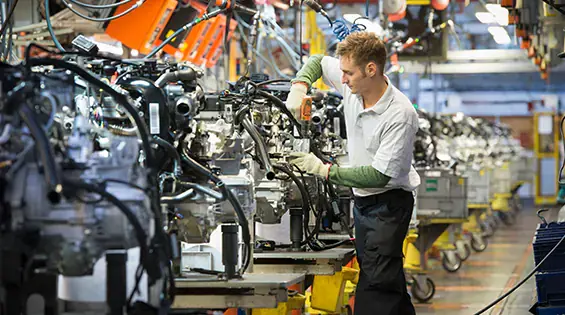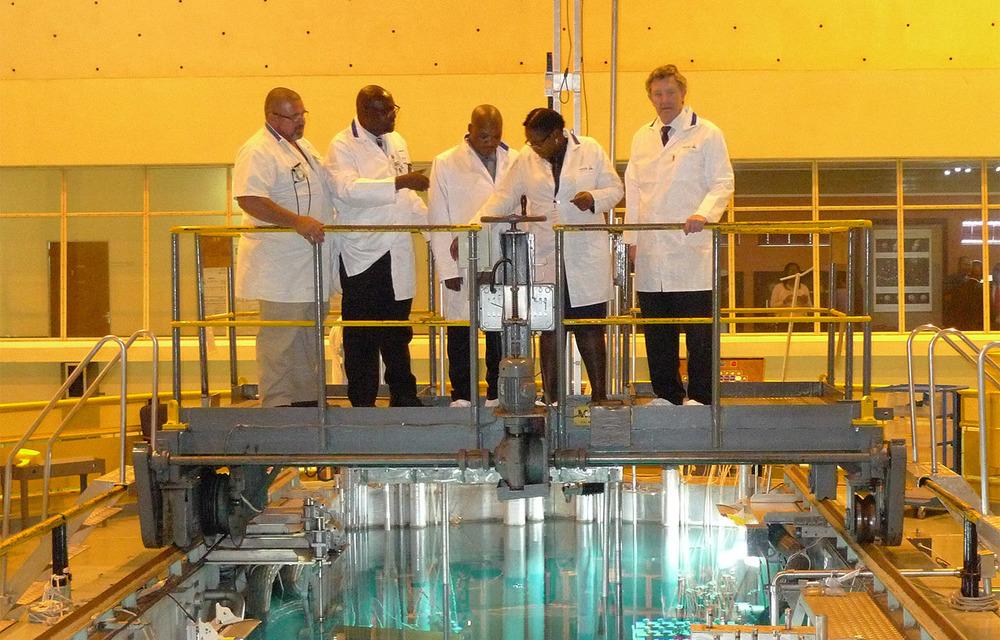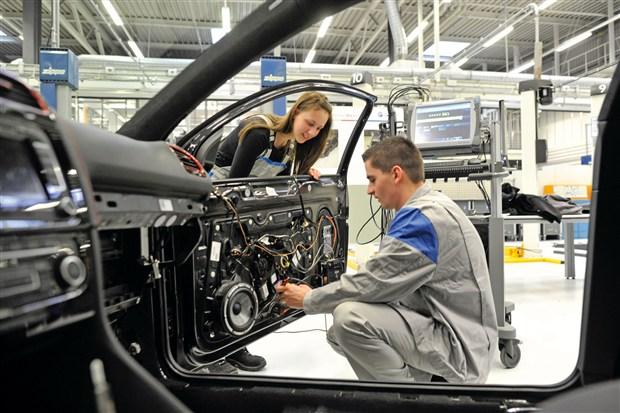Explore Our Bill Payment Services:

- Salary And Allowance
- Engineers Salary
- South Africa
Salary Landscape For Automotive Engineers In South Africa
Automotive engineering is one of the most dynamic and rewarding fields within South Africa’s industrial and manufacturing sector. The country has a long history of vehicle production, with global brands setting up assembly plants in key cities such as Port Elizabeth, Pretoria, and Durban. Automotive engineers play a crucial role in designing, developing, testing, and refining vehicles and their components to ensure efficiency, safety, and sustainability.
But one of the most common questions aspiring engineers ask is: How much do automotive engineers really earn in South Africa? The answer is not a simple figure. Instead, it is shaped by a wide range of factors—such as years of experience, location, education level, specialization, and even global economic conditions. This article explores the salary structure and allowance packages for automotive engineers in South Africa, highlighting how earnings evolve throughout a professional’s career.
Base Salary Insights
The base salary of an automotive engineer in South Africa varies widely depending on entry-level status, mid-career experience, and seniority.
-
Entry-level automotive engineers can expect to earn approximately R159,000 to R200,000 annually, translating to about R13,000–R16,000 per month. At this stage, graduates are often involved in supervised design work, assisting with testing, or supporting project teams.
-
Mid-career engineers with around 4–9 years of experience generally earn between R300,000 and R400,000 annually (R25,000–R33,000 per month). By this time, they usually handle more complex projects, manage smaller teams, or specialize in key areas such as safety systems or manufacturing processes.
-
Senior professionals with 10–20 years of experience can earn around R468,000 annually, or R39,000 per month.
-
Highly experienced engineers with more than 20 years of service can earn over R540,000 annually, sometimes exceeding this depending on managerial roles, sector demand, and company size.
On average, automotive engineers in South Africa earn around R370,000 annually, but top professionals in high-demand positions can cross the R600,000 mark.
Salary Progression by Experience
Like most engineering careers, earnings in the automotive sector grow steadily with experience:
-
Junior (0–3 years): R15,000 per month (~R180,000 annually).
-
Mid-career (4–9 years): R28,000 per month (~R336,000 annually).
-
Senior (10–20 years): R39,000 per month (~R468,000 annually).
-
Very Experienced (20+ years): R45,000+ per month (~R540,000+ annually).
This structure reflects how responsibilities and technical knowledge increase over time. Engineers with professional registrations or additional postgraduate qualifications also tend to rise faster through salary brackets.
Project Engineers in the Automotive Sector
A common role within the industry is the Automotive Project Engineer, responsible for overseeing new product development, coordinating teams, and ensuring deadlines are met. Their salary growth follows a predictable pattern:
-
0–2 years: R12,800 per month (~R153,600 annually).
-
2–5 years: R16,400 per month (~R196,800 annually).
-
5–10 years: R22,600 per month (~R271,200 annually).
-
10–15 years: R28,000 per month (~R336,000 annually).
-
15–20 years: R30,000 per month (~R360,000 annually).
-
20+ years: R32,000 per month (~R384,000 annually).
Project engineers earn slightly less than senior automotive engineers but often have room for growth into program management or senior leadership positions.
Specialized & Managerial Roles
Beyond the standard automotive engineer role, certain specializations and leadership positions command significantly higher salaries:
-
Automotive Engineering Manager: ~R1,300,000 annually.
-
Design Engineers: ~R621,000 annually.
-
Program Managers: ~R588,000 annually.
-
Test Engineers: ~R452,000 annually.
-
Manufacturing Engineers: ~R532,000 annually.
-
Quality Managers: ~R511,000 annually.
-
EV (Electric Vehicle) Engineers: ~R275,000 annually.
This data illustrates how diversifying skills and moving into management can push salaries beyond the R1 million mark. For instance, EV engineering—though still emerging in South Africa—shows promise, as global trends push toward sustainable mobility.
Geographic Influence on Pay
Location significantly impacts how much an automotive engineer earns. South Africa’s automotive industry is concentrated in specific hubs, and salaries often reflect the cost of living and demand in those areas.
-
Cape Town and Sandton: Professionals here can expect higher earnings, sometimes surpassing R60,000 per month in specialized or managerial positions.
-
Port Elizabeth and Pretoria: With their strong automotive manufacturing presence, engineers typically earn competitive salaries, averaging around R30,000–R40,000 per month.
-
Durban and other secondary cities: Salaries are generally lower compared to Cape Town and Johannesburg but remain respectable, especially for technicians and junior engineers.
In essence, engineers working in metropolitan areas and automotive hubs usually enjoy better compensation compared to those based in smaller towns.
Allowances & Additional Compensation
While base salary forms the core of compensation, automotive engineers in South Africa often benefit from several allowances and perks. These additional benefits make a significant difference in total income.
-
Bonuses & Profit-Sharing
Many companies in the automotive sector provide annual bonuses tied to performance or project milestones. Some engineers report receiving bonuses up to R64,000, while profit-sharing can add another R100,000 annually. -
Medical Aid & Retirement Benefits
Employers often include health coverage, dental benefits, life insurance, and pension contributions. These allowances safeguard long-term financial well-being. -
Performance-Linked Incentives
Engineers in testing and project roles may receive performance-based incentives when key project goals are achieved. -
Vehicle Allowances or Company Cars
Given the nature of the industry, some engineers benefit from company-sponsored vehicles or monthly vehicle allowances. -
Education & Training Support
Career advancement is encouraged through company sponsorship of advanced studies, certifications, and professional development programs.
Combined, these allowances can significantly boost the net value of an engineer’s compensation package.
Economic Context & Industry Trends
The salary structure of automotive engineers does not exist in isolation—it is closely linked to the overall state of the automotive industry in South Africa.
Growth Opportunities
The government has introduced incentives to promote electric vehicle (EV) production and battery manufacturing. This shift is expected to create new demand for engineers specializing in EV design, battery technology, and sustainable automotive solutions.
Challenges
At the same time, the industry has faced job losses and company closures, particularly due to declining local content in manufacturing and global competition. These challenges can suppress wage growth and limit opportunities for new graduates entering the field.
Outlook
Despite short-term instability, the long-term outlook remains positive. Engineers who adapt to new technologies, upskill in EV systems, and align with global standards are likely to see higher salaries and increased demand.
Summary: Salary Structure at a Glance
-
Entry-Level Engineers (0–3 years): ~R180,000 annually.
-
Mid-Career Engineers (4–9 years): ~R336,000 annually.
-
Senior Engineers (10–20 years): ~R468,000 annually.
-
Highly Experienced Engineers (20+ years): ~R540,000+ annually.
-
Specialized Roles: R450,000–R600,000 annually.
-
Managerial Roles: R1 million+ annually.
-
EV Engineering Roles: Currently ~R275,000 annually but expected to grow with industry demand.
Final Thoughts
The automotive engineering profession in South Africa offers both financial and professional rewards, though the journey can vary depending on industry cycles, skills, and location. While entry-level salaries may seem modest, steady growth is guaranteed with experience, and specialized or managerial roles can take compensation beyond R1 million annually.
With additional allowances—such as bonuses, medical aid, pension schemes, and even company cars—the profession provides a well-rounded compensation package. Most importantly, as South Africa embraces electric vehicle technology and sustainable manufacturing, automotive engineers who position themselves in these emerging areas will enjoy the greatest financial benefits.









